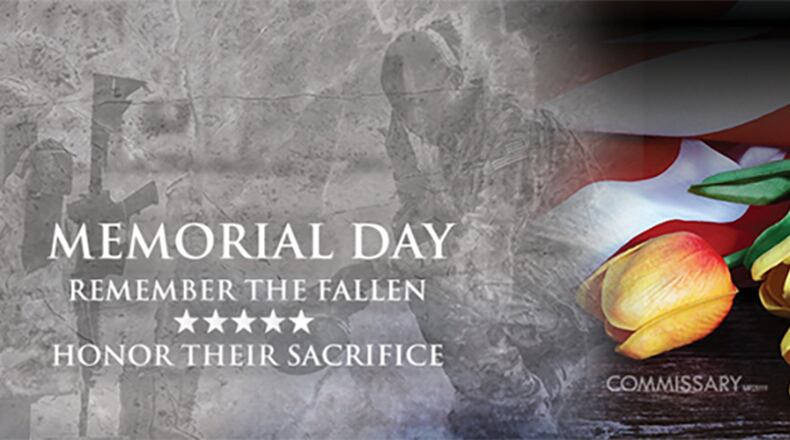“The legacy of service that echoes from Memorial Day is a constant reminder to our employees that we exist to support our military communities in good times and bad,” he said.
It’s in times of crisis like the COVID-19 outbreak that the sacrifices of the fallen service members honored on Memorial Day resonate even more with our employees, said Army Command Sgt. Maj. Tomeka N. O’Neal, senior enlisted advisor to the agency director.
“More than 66 percent of our commissary workforce has a direct connection with the military – military spouses, other family members, reservists, military retirees and other veterans,” O’Neal said. “So for us, Memorial Day is personal; it’s a constant reminder to all of us that our patrons walk in the footsteps of those who paid the ultimate price for our freedom, and we owe our military communities our best in delivering this benefit to them.”
DeCA conducting health screenings
The Defense Commissary Agency is now doing daily health screenings of anyone who works in commissaries – including employees, baggers and affiliated contractors – before they start their shifts.
Commissaries will initially conduct the screenings with a questionnaire that focuses on any visible symptoms related to COVID-19 and traces their travel history as well as potential connections with anyone affected by the virus.
The screening include temperature checks with infrared thermometers. If a temperature check determines anyone is a potential risk, they will be directed to go home and contact their health care provider. They can return to work once they have no signs of a fever or illness, and they will be screened again.
“Military resale is good at evolving and adapting, and screening the people who work in our stores is the first step in a new normal that helps reduce the risk of transmission for everyone,” said Bianchi. “We should expect to operate like this for the foreseeable future.”
Bianchi, who is also the CEO of the Navy Exchange Service Command (NEXCOM), said his Navy Exchange stores are also preparing to implement these procedures for the personnel working in their facilities.
“There are probably going to be many commercial businesses that start implementing temperature checks for employees and wearing of face coverings, so this should be no surprise to anyone as they may experience this in many aspects of their personal lives,” he said.
The employee health screenings are the latest in a series of safety measures commissaries have implemented:
• Anyone (including customers) entering a store must wear a face covering.
• Stores have plexiglass sneeze shields in all regular checkout lanes.
• Commissary personnel wipe down checkout areas, product display cases, restrooms and shopping carts with disinfectant, and practice routine hand washing and other basic sanitation measures.
• Touchless credit card processing eliminates the need for the customer to sign.
• Customers scan their own ID cards so cashiers can provide them touchless transactions.
• Reusable bag usage has been banned.
• Only authorized customers – this includes disabled veterans with VHIC cards – will be able to enter a commissary. Visitors will no longer be allowed to accompany authorized customers and a 100% ID check is in place.
• DeCA canceled special events such as the spring sidewalk sales, in-store product demonstrations (including DeCA’s free coffee program), group tours, vendor-sponsored events and other events to discourage group gatherings.
• Commissaries are working with installation leadership and public health personnel to implement risk reduction practices such as designated store hours for various patron groups and limiting the number of patrons in the store.
Commissary customers should continue to refer to the federal government’s response to coronavirus, COVID-19 website and the Centers for Disease Control and Prevention’s Coronavirus site for updates and guidance regarding this virus.
About the Author
